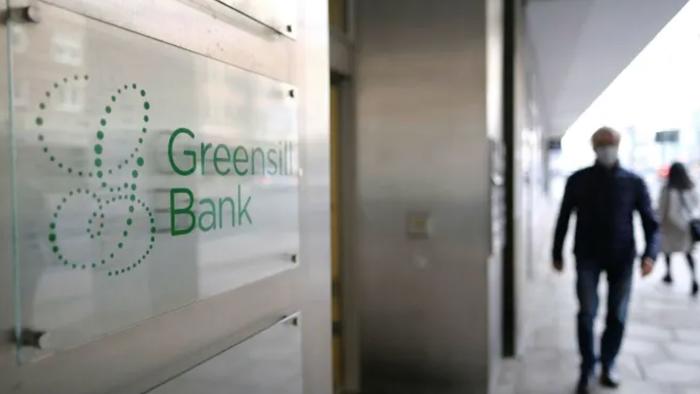"We Expect The Worst" - German Towns To Lose Millions In Greensill Bank Collapse
Germany's Bafin has frozen accounts at Greensill's Gremany-based bank as its parent company's debt-repackaging business has tumbled into administration. And unfortunately, the demise of the bank will likely take tens of millions of euros of public money that had been invested in short-term high-interest accounts.
Millions of dollars belonging to German municipalities had reportedly been parked at the Bremen, Germany-based bank. And because towns and cities aren't protected by a German deposit-protection scheme that shields assets belonging to individuals, town managers and elected officials fear they won't be able to recover the taxpayer money, adding to the financial strain as the world struggles to recover from the COVID-19 pandemic.
Germany's economy is still in a partial COVID-19-inspired lockdown. After losing out on countless tax revenue, towns may be forced to do without deposits parked at Greensill Bank, which apparently had been recommended to dozens of Germany towns by a pair of brokerages that help municipalities park their cash.
One town, Monheim on Rhein, parked €38M with Greensill Bank.
Monheim am Rhein disclosed it parked 38 million euros in funds with Greensill Bank, nearly 1,000 euros per resident.
Its mayor Daniel Zimmermann said he was in touch with 19 municipalities who together hold 200 million euros ($238 million) in investments with the bank.
An emergency meeting in Monheim on Tuesday discussed the fallout, and whether internal mistakes were made or whether brokers who helped make the investments should bear some of the blame.
"We don’t want to shun responsibility, but others may be at fault," Zimmermann told Reuters.
Zimmermann said that two of the brokers it used -- CC Gesellschaft für Geld- und Devisenhandel mbH and Witt GmbH & Co. KG -- were also used by other towns.
Another town that lost €2M said it's hoping for the best - but expects to lose it all.
“We have to find out what happened,” Alexander Stengelin, a Bad Duerrheim official told Reuters.
[...]
For Bad Duerrheim, which says it has 2 million euros with the bank, Stengelin said that the town felt comfortable that two brokers independently recommended Greensill Bank.
And while it had been reassured by the fact that the money would be close to home in a bank in Germany rather than offshore, it was not now hopeful of recovering its cash.
"We expect the worst, but hope for the best," he said.
Greensill's trade-finance business collapsed this past week as Apollo and JPM walked away from what's left of the financial engineering business. For those who haven't been following the story, Greensill was known as an innovator in an obscure field called trade finance. The firm would package invoices into securities and sell them to investors, allowing firms to get paid quicker and 'speed up the cycle of global capitalism', while collecting a generous rate of interest.
The only problem is many of Greensill's products had ties to GFG Alliance, the metals conglomerate controlled by Sanjay Gupta. When Greensill's primary insurer decided to end coverage on some of the securities produced by the firm, Credit Suisse was forced to freeze redemptions from $10 billion in funds stocked with Greensill assets, claiming the assets had become impossible to value.
Lex Greensill, the firm's founder and a former Australian farmer who rose from obscurity to befriend prime ministers and royals, insisted that the company had been transparent with clients and its insurers. But nevertheless, Bloomberg reported earlier in a retrospective about the firm's collapse that, while it took Greensill 20 years to ascend to finance superstardom, his unraveling took only a week. Tyler Durden Sat, 03/13/2021 - 08:45
http://dlvr.it/RvYSKt

No comments:
Post a Comment